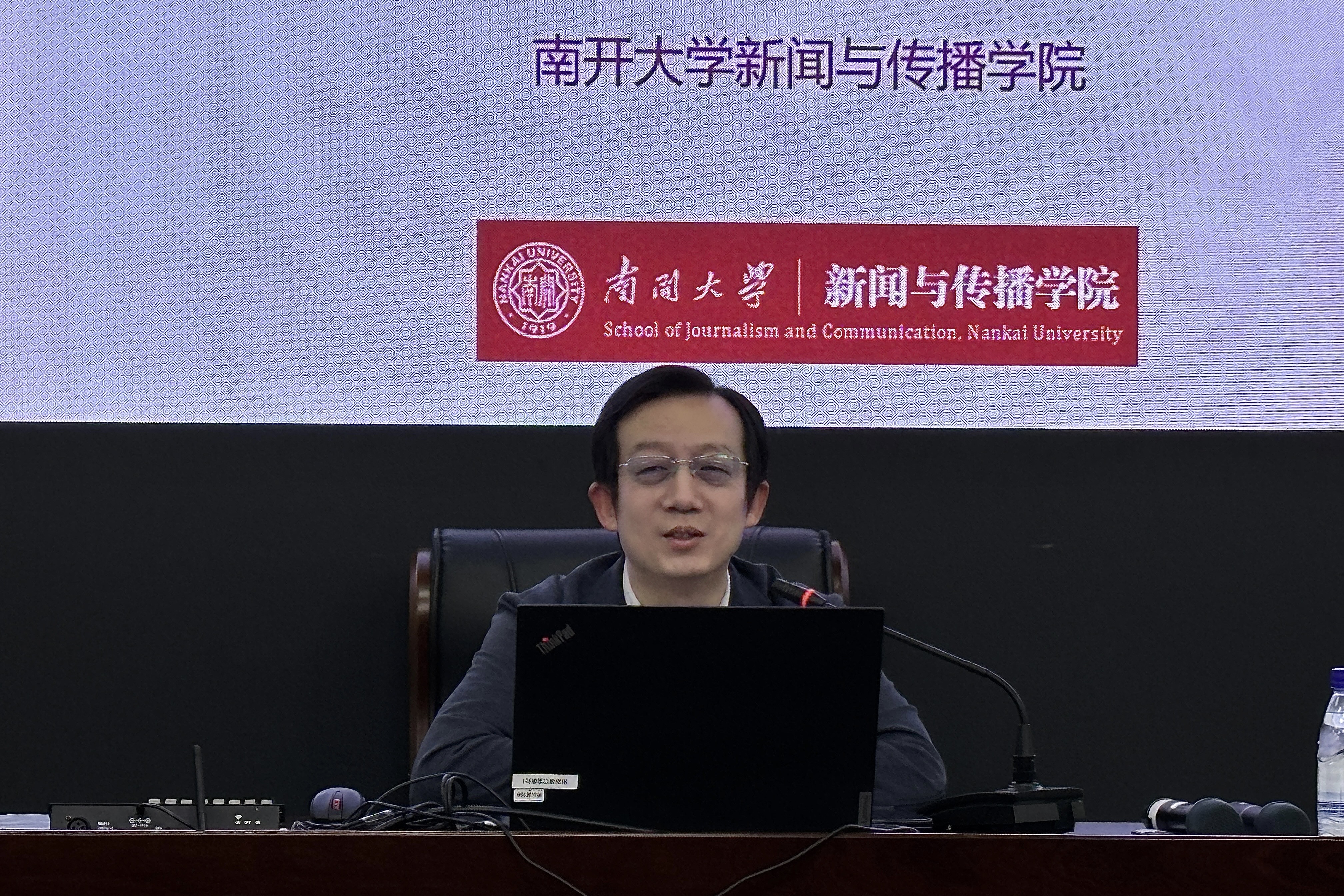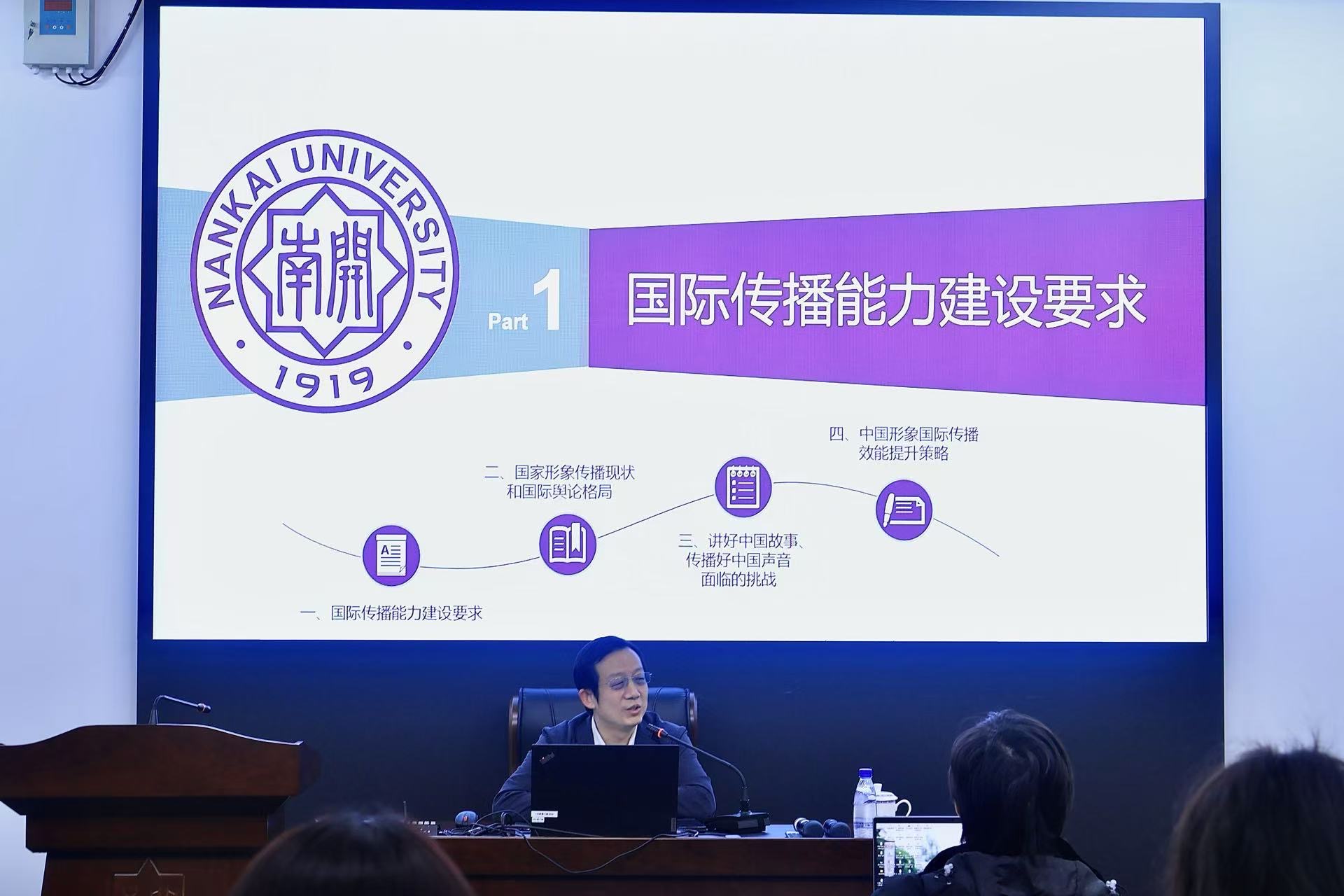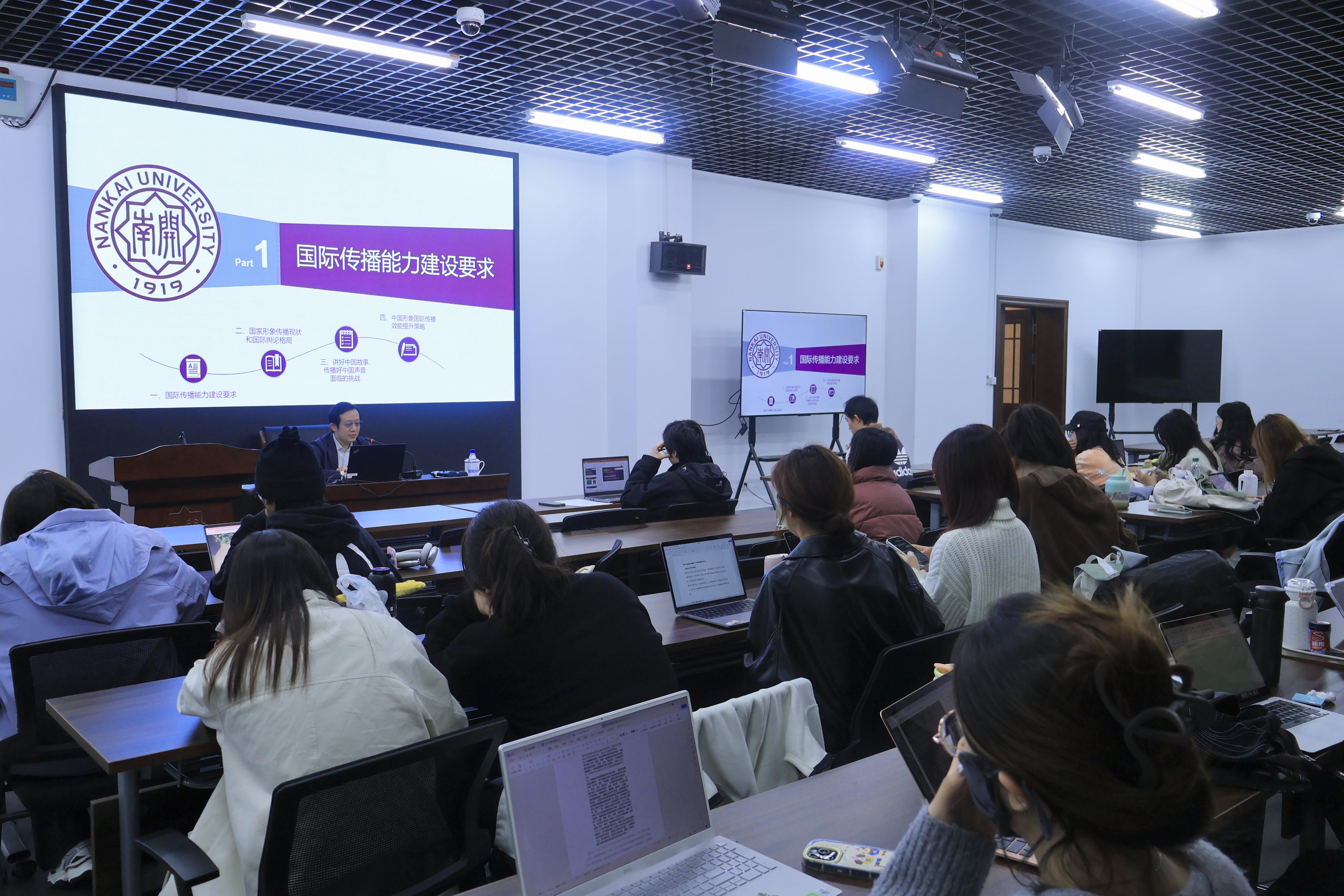On the evening of November 5, Chen Peng, Vice Dean, Associate Professor, and Doctoral Supervisor at the School of Journalism and Communication, gave an academic lecture on the theme of Requirements and Countermeasures for the Construction of International Communication Capabilities as part of the Appointment with Mentors - Teacher-Student Exchange Afternoon Tea activity in Room 108, Xiushan Hall. More than 40 graduate and undergraduate students from the School of Journalism and Communication attended the lecture.

Focusing on the core theme of international communication, Professor Chen shared his insights from four perspectives: the requirements for building international communication capabilities, the current situation of national image communication and the international media landscape, the challenges of telling China's stories and spreading China's voice well, and the strategies to enhance the effectiveness of China's international image communication. He provided a deep analysis of China's tasks in international communication and the realistic challenges it faces, offering insightful solutions.

Professor Chen started the lecture by drawing on the guiding principles of General Secretary Xi Jinping's important speeches on strengthening and improving international communication endeavor to present a real, multi-dimensional, and comprehensive image of China, as well as the requirements for culture, media, and communication outlined in the report to the 20th National Congress of the CPC. He introduced the achievements of China's international communication efforts since the 18th National Congress of the CPC and emphasized the importance of enhancing the influence of international communication, the appeal of Chinese culture, the affinity of China's image, the persuasiveness of Chinese discourse, and the guidance of international public opinion.
Next, Professor Chen used the Global Soft Power Index 2024 released by Brand Finance and other survey reports and data to introduce the current situation of China's national image communication, pointing out that China's comprehensive influence and positive image are widely recognized by the international community, but it also faces challenges such as having reason but not being able to explain it, being able to explain it but not being able to spread it, and being able to spread it but not being able to make it heard. To address these challenges, he suggested better shape the national image through concerted efforts from the media, central government, local governments, cross-cultural communication, and public diplomacy.
In his lecture, Professor Chen, combining the disciplinary characteristics of the School of Journalism and Communication, pointed out that as international communication channels shift from traditional radio and television to social media platforms, the communication models are also changing. He encouraged the students to actively try individual MCN to publish interesting and valuable works on social media platforms. This is not only an effective way to showcase oneself, but also a practical opportunity to cultivate new media literacy. In doing so, students are expected to make themselves vivid participants in people-to-people diplomacy in the increasingly diversified international communication landscape, contributing their part to telling China's stories well.
In conclusion, Professor Chen summarized that international communication is a complex and arduous task requiring sustained efforts. While China's international communication endeavor has achieved certain results, various parties involved still need to continuously adjust their work strategies to better spread China's voice and shape China's image.
Professor Chen's insightful sharing integrated an open international perspective with professional academic insights, greatly enlightening the participating students and inspiring their reflections on how young people can tell China's stories well to the world.

This event was organized by the Student Affairs Department of the CPC NKU Committee, and hosted by the Graduate Student Association, the Academic Atmosphere Cultivation Office, and the Youth League Branch of the 2024 Master's students of the School of Journalism and Communication. Going forward, guided by cutting-edge academic hot topics and industry development trends, the School of Journalism and Communication will further broaden and deepen the themes of the Appointment with Mentors activity to provide students with a valuable platform to deepen their understanding of media trends and exchange academic ideas.


